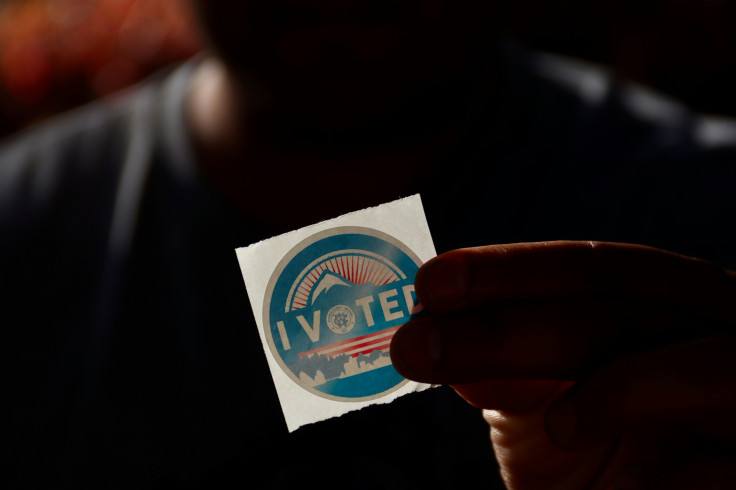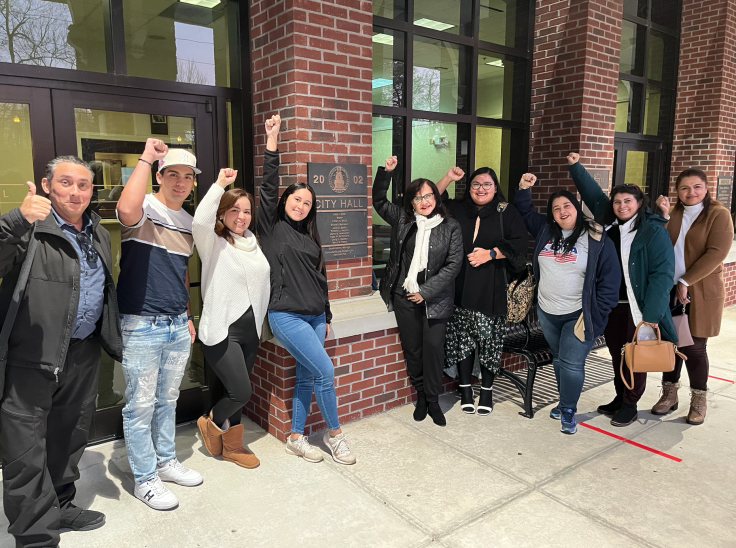
NEW YORK CITY - Election season in the U.S., particularly in the recent hyper-partisan and polarized environment the country finds itself in, can be a time of great disinformation and confusion.
As the presidential race gets closer, an NBC News report warns that a convergence of events at home and abroad, on both traditional and social media, makes the dangers from propaganda, falsehoods and conspiracy theories more dire than ever.
Confusion, misinformation and lack of knowledge can often be even more dire for the Latino and immigrant electorate, who, after moving to the country, may not be as aware of their political power and the legal extent to their civic participation as natives or people who have been there longer.
Mi Familia Vota, a non-profit organization, is seeking to change that by uniting Latino, immigrant and allied communities to promote social and economic justice through citizenship workshops, voter registration and voter participation.
With operations in Arizona, California, Colorado, Florida, Georgia, Nevada and Texas, the organization focuses on issues like voter education, immigration and voting rights.
Irving Zavaleta, the organization's National Programs Manager who focuses on the states of Georgia and North Carolina, recently sat down with The Latin Times to discuss Mi Familia Vota's mission and how it's helping Latino voters become empowered with their voting rights.
This interview has been edited for length and clarity.
How would you describe the current climate of Latinos in regard to the upcoming elections?
I think that we're seeing a trend in which Latinos are interested in how the policies that are being enacted or proposed affect them in their daily lives. How does that affect their healthcare? How does that affect their pocketbook? How does that affect their transportation? Or their schooling? Etc.
I think that's where we see the most opportunities for both parties to cement and solidify how their policies align with Latino priorities. As a community, we are eager to get engaged, but there's definitely that opportunity gap for both parties to reach our Latino community and their concerns.
What do you think are the issues most salient to Latinos right now?
We actually conducted a survey along with our partner UnidosUS, where we surveyed Latinos in our various states where we are. There's a common trend that the pocketbook issues, like the economy or jobs are primary concerns to Latinos. But also, in some states, healthcare and access to healthcare is a big issue. Something we found out since 2022 is that after Roe v. Wade was overturned and there was a clear support for Latinos in contrast to what people may perceive of Latinos and where they stand on this issue. There was clear support for the women's right to choose from the Latino community, and that has stayed with time, even a year after.
I think that on the issue of immigration, it doesn't rise to the top 5 issue, however, it doesn't rise to that because we are disillusioned by both parties' ability to pass a comprehensive and humane immigration reform.
I also want to point out the concern that Latinos, especially young Latinos have about the environment. We care about having a robust environmental policy for future generations to come. Those are some of the primary issues that we've seen.
In Georgia, for instance, a nuance in the immigrant community, particularly immigrants from Venezuela, is that they really are interested in voting rights because they have not been able to participate in a true democracy. Now that they are here, they can see the limitations being imposed on voters, like voter ID laws, and other factors that really try to limit some of these abilities of people to make it to the ballot box.

What kind of initiatives does Mi Familia Vota have to educate Latino immigrants in regards to elections and democracy?
We have a few, but there are two in particular that I want to point out.
We have a program called SYCLAC (Seminarios y Capacitaciones de Acción Cívica), which is really our democracy academy for Spanish speakers. There are several organizations doing this type of work, but what we realized is that there's not a lot of work being done to really turbocharge and to mobilize, to engage our Spanish speakers into elections. We want to ensure that people have a voice and we want to give them tools to advocate for their rights. This is a five session democracy academy. The first four sessions are discussions and we talk about the kind of issues they would like to discuss in a government meeting.
We are also getting ready to launch a campaign in North Carolina and Georgia called the "Merecemos Mejor" campaign (we deserve better), which makes sure our community is informed, engaged and is ready to take civic action on issues about immigration, the economy and our environment, as well as voting rights. I think it's important for people to know "que tenemos poder y nuestras voces son importantes" (we have power and our voices matter). We can empower one another and use our voices to take actions in the civic process for progressive solutions and legislation.
How do you think the Latino vote will shape the upcoming elections?
In the states where we are, the Latino vote will most likely help determine the balance of power in the country. In Nevada, the Senate race in 2022 which helped reelect the only Latina in the Senate, Catherine Cortez Masto, was only decided by around 10,000 votes. In Georgia the presidential election was decided by like 15,000 votes. In North Carolina, it was decided by about 75,000 votes. Our vote is so critical. We cannot afford for people to stay at home because they don't know the issues that are being put on the table, and I think that it's our combined responsibility to engage our community, to ensure that they use their voice.
What other steps can individuals take to keep promoting the Latino vote in the future?
I want to see a place where Latinos are thriving. Where our communities are at the forefront of elected politicians and their policies. Where our communities are engaged in a democratic space, "con o sin papeles" (with or without papers).
What we— the government, nonprofits and others— collectively need to do, is to ensure that there are leadership programs and programs overall that engage the community, that give them power, that give them the information so they can utilize it to claim their power. It needs to be a well-oiled machine to have a thriving Latino community here in the U.S.
© 2025 Latin Times. All rights reserved. Do not reproduce without permission.





